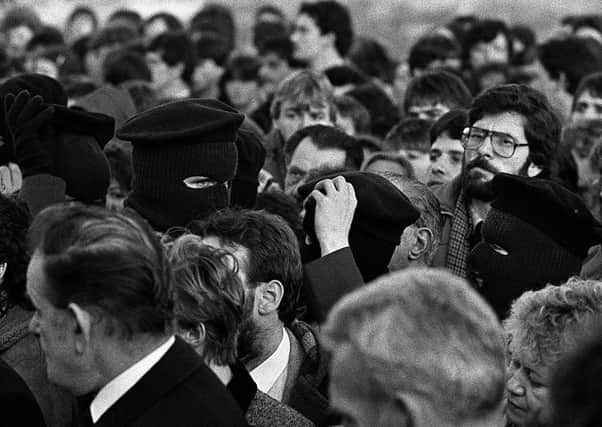History suggests that there is little prospect of any trials of republican leaders


(Trevor Ringland’s letter can be read here: ‘The Supreme Court ruling in the Gerry Adams case walked on graves of judges murdered by IRA’).
Does anyone really believe that there is any likelihood of prosecution of the republican terrorist leaders?
Advertisement
Hide AdAdvertisement
Hide AdI fear that for Mr Ringland to claim so could falsely raise the hopes of many of the victims.


The historical facts would appear to undermine Mr Ringland’s submission.
1. William Whitelaw, whose failure as secretary of state for Northern Ireland to sign the order to intern Gerry Adams led to last week’s Supreme Court ruling, was the very man who was bound to have concurred with the flight to London of Adams and Martin McGuinness in 1972 to meet British officials.
Interestingly Adams and McGuinness thereafter quickly climbed the heights of Sinn Fein.
Advertisement
Hide AdAdvertisement
Hide Ad2. William Whitelaw is reported to have discussed Father Chesney, the priest alleged to have played a role in the IRA Claudy bomb, with the Roman Catholic cardinal before Father Chesney was allowed to escape to Donegal and avoided arrest.
3. Mr Ringland’s claim of the fairness of British justice system, as evident he says in the Gerry Adams Supreme Court decision, seems to me to be at odds with his comment later “the unbalanced way the narrative of the Troubles is being reshaped in our courts”.
4. One of the greatest travesties of the judicial system was the release in the 1980s by the then lord chief justice of all those convicted on supergrass evidence.
The QC, now deceased, who represented most of the accused was an old friend of mine, and he made it clear to me that at the appeals he did not have to kick the door open for an acquittal.
The political decision seemed to have been made, he told me.
I have little doubt that this claim can be supported by the late QC’s close legal friends.
Lyle Cubitt, Retired solicitor, Ballymena